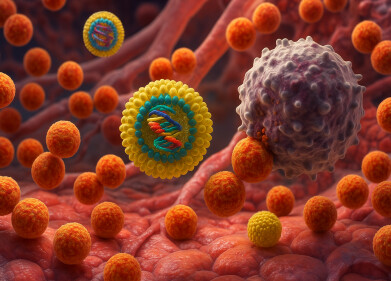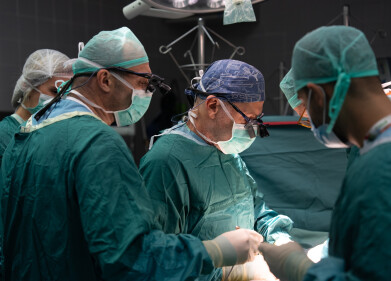News
Grants take functional 3Rs Technologies forward
May 09 2023
NC3Rs has awarded £90K for two collaborative projects focused on cell-based models of disease for functional genomic screens that can be applied more confidently in industry to identify and validate potential new therapeutic targets.
The T2T funding scheme acts to accelerate uptake of new models and tools into industry by offering NC3Rs grant holders the opportunity to develop a collaborative project with the Milner Technology Institute (MTI) and apply their CRISPR gene editing approaches to create human-relevant models of disease for drug development. Each award is complemented with matched in-kind contributions from the MTI, including access to their functional genomics facilities, expertise and industry networks.
Dr Anthony Holmes, NC3Rs Director of Science and Technology, said: “These awards will help increase the reach and impact of NC3Rs-funded project outputs and have the potential to support the pharmaceutical industry in identifying new disease targets in human model systems. There is still much work to be done to get to that stage, but by applying MTI’s functional genomics capabilities to models we have funded the development of, we hope to accelerate that process and maximise the 3Rs impacts of our investment.”
Dr Nicola McCarthy, MTI Interim Director, said: “We are excited to be working with leading UK academics who have previously worked with NC3Rs to develop the next generation of in vitro human disease models, thereby reducing the reliance on animal models. Building on the knowledge and expertise of our academic partners, we will assess whether these disease models can be extended for use in high throughput genetic screens. Importantly, the MTI will work with our 12 Consortium pharma partners to understand the assay conditions and outcomes that could lead to the adoption of these models into industry R&D workflows.”
Awarded projects are:
Adopting ClonoScreen-3D, a high-performance 3D drug-radiation screening platform for CRISPR campaigns towards the identification of novel targets for radiosensitisation in glioblastoma: building on the model developed by Professor Anthony Chalmers and Dr Maria de la Natividad Gomez-Roman, (awarded £46,913) to develop a high-throughput screen to investigate whether specific genetic alterations in brain cells lead to radiotherapy resistance in brain cancer.
Assessment of an in vitro acute lymphoblastic leukaemia model for high-throughput arrayed CRISPR screening: utilising the technology developed by Dr Deepali Pal, this project was awarded £42,268, aiming to identify gene pathways by which leukaemia cells interact with bone marrow cells, and how these interactions might contribute to drug resistance.
More information online
Digital Edition
Lab Asia Dec 2025
December 2025
Chromatography Articles- Cutting-edge sample preparation tools help laboratories to stay ahead of the curveMass Spectrometry & Spectroscopy Articles- Unlocking the complexity of metabolomics: Pushi...
View all digital editions
Events
Jan 21 2026 Tokyo, Japan
Jan 28 2026 Tokyo, Japan
Jan 29 2026 New Delhi, India
Feb 07 2026 Boston, MA, USA
Asia Pharma Expo/Asia Lab Expo
Feb 12 2026 Dhaka, Bangladesh



















